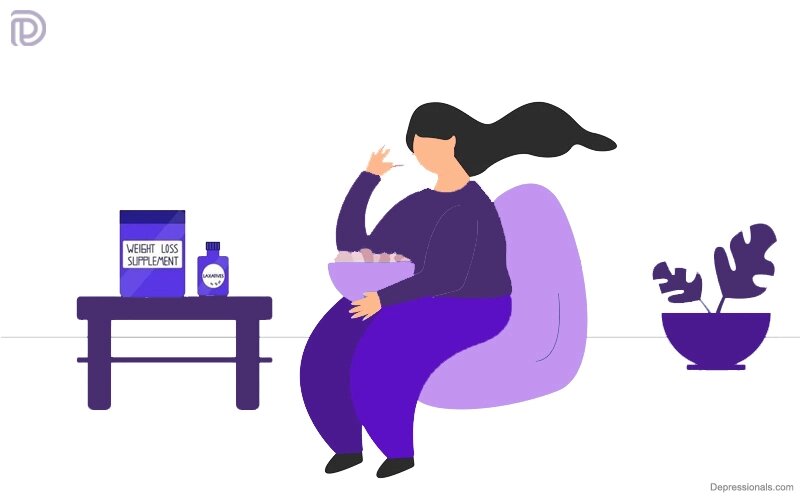A Quick Guide
Bulimia Nervosa is an eating disorder characterized by binge eating followed by purging through self-induced vomiting or misuse of laxatives. People with bulimia have an obsession with body weight and shape, engage in excessive compensatory behaviors, and face physical, emotional, and behavioral challenges. Complications can include electrolyte disturbances, digestive problems, dental issues, heart problems, and mental health issues, while causes may involve genetics, dieting, and emotional and psychological factors.
What is Bulimia Nervosa?
Bulimia Nervosa is an eating disorder that is characterized by eating a large amount of food in a short period of time. A person may feel a loss of control during these episodes and then try to get rid of that food by purging. Purging can be done through self-induced vomiting, misuse of laxatives or diuretics, etc.
Those with bulimia tend to have an obsession to achieve the ideal body weight and shape. They also tend to be very self-critical. So after they have had an episode of binge eating, they may also try excessive compensatory behaviors such as fasting, extreme dieting, or intense workout. Bulimia can be really hard to overcome because it is not just about food. A person may face various physical, emotional, and behavioral issues due to this disorder. Moreover, this disorder can also be life-threatening if not controlled.
According to the National Institute of Mental Health, the lifetime prevalence of bulimia nervosa in US adults is 1.0%. Bulimia Nervosa has been observed to affect more females rather than males. While it can develop at any age, the most typical onset is during adolescence and early adulthood.
Symptoms
It can be challenging to be sure if someone has bulimia. Though there are some behavioral and emotional symptoms a person exhibits like the following:
- A self-image that is quite negative
- A sense of lack of control
- An obsession with appearance and weight
- Exercise in excess
- Having shame or embarrassment over eating
- Making remarks about being “fat”
- Repeated restroom visits, especially following meals
- Severe fear of gaining weight
- Social isolation from friends and family
- Substance addiction, anxiety, or depression
Some physical symptoms of bulimia include the following:
- Dehydration
- Digestive issues that include acid reflux and constipation
- Discoloration of teeth due to stomach acid
- Eyes that are bloodshot
- Fainting
- Irregular periods of menstruation
- Knuckle calluses, scars, or scratches
- Muscle weakness
- Swelling on the jawline or cheeks
Watch: [Bulimia Nervosa: Symptoms, Treatment, and Support]
Complications
Some complications that can occur due to bulimia are mentioned ahead:
- Anxiety, depression, and abuse of drugs or alcohol
- Chemical or electrolyte disturbances
- Constipation or other digestive problems
- Damaged stomach and intestines
- Dehydration
- Gum disease, dental decay, and cavities
- Heart failure
- Increased suicide risk
- Irregular heartbeat
- Lack of a menstrual cycle
- Nutritional deficits
- Renal damage
- Stomach and throat ulcers
Causes
It is unclear what specifically causes bulimia. Eating disorders may arise for a variety of reasons, involving genetics, biology, emotional well-being, societal expectations, and other factors. The following things could make you more likely to develop bulimia:
Genetics: There may be a genetic component to the higher risk of eating disorders in those with first-degree relatives who have them. The risk may arise if a child or teenager is overweight.
Dieting: Those who tend to be mostly preoccupied with different diets are more likely to experience eating disorders. Between binge episodes, a lot of people with bulimia drastically restrict their caloric intake, which can lead to cravings for further binge eating followed by purging. Other factors that can lead to binge eating include stress, a negative body image, food, and boredom.
Emotional and Psychological Issues: Eating disorders are often related to psychological and emotional issues like depression, anxiety disorders, OCD, and substance use disorders. Those with bulimia often have low self-esteem and are overly self-critical of themselves. Traumatic experiences and environmental factors may also occasionally play a role in bulimia cases.
Learn more about how OCD is related to Eating Disorders.
We hope you found this article useful in understanding more about what bulimia is, along with its symptoms, causes, and complications.



 6 Common Types Of Eating Disorders Explained
6 Common Types Of Eating Disorders Explained  Understanding Avoidant/Restrictive Food Intake Disorder: Could selective intake be a problem?
Understanding Avoidant/Restrictive Food Intake Disorder: Could selective intake be a problem?  Bulimia Nervosa: Diagnosis, Self-Test Options & Treatment
Bulimia Nervosa: Diagnosis, Self-Test Options & Treatment  Pica: Eating Disorder-Symptoms, Causes, Complications
Pica: Eating Disorder-Symptoms, Causes, Complications